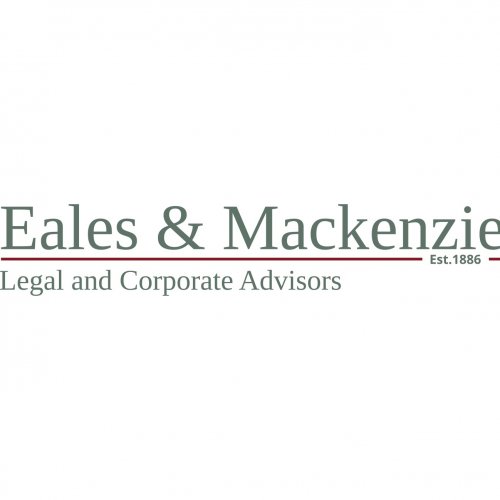Best Tax Increment Financing Lawyers in Essendon
Share your needs with us, get contacted by law firms.
Free. Takes 2 min.
List of the best lawyers in Essendon, Australia
About Tax Increment Financing Law in Essendon, Australia
Tax Increment Financing (TIF) is a public financing method aimed at funding infrastructure and redevelopment projects through future tax revenue increases, which are expected to result from increased property values. In Essendon, Australia, TIF is utilized by local governments to encourage economic growth and urban renewal. It allows for improvements without directly increasing local taxes, making it a particularly attractive option for both developers and municipalities aiming to stimulate development in designated areas.
Why You May Need a Lawyer
Engaging a lawyer specializing in TIF may be necessary in several situations. These include understanding the legal framework and agreements involved, negotiating with local government entities, ensuring compliance with local laws, and resolving disputes that may arise during the execution of a TIF project. Lawyers can also assist developers in structuring their projects optimally to leverage the benefits of TIF, advising on risk management, and facilitating complex multi-party negotiations.
Local Laws Overview
In Essendon, TIF is governed under state and local government regulations. Key aspects include the requirement for a TIF district to be established as a designated area with potential for economic revitalization. There are statutory requirements for consultation with stakeholders and demonstrating public benefit. Additionally, expenditure of TIF funds is regulated to ensure it aligns with approved development plans. Understanding these regulations is crucial for successful navigation and implementation of TIF projects.
Frequently Asked Questions
1. What is Tax Increment Financing?
Tax Increment Financing is a funding method allowing municipalities to fund infrastructure and community improvement projects by utilizing the projected increase in tax revenues from rising property values within a designated area.
2. How is a TIF district designated?
A TIF district is designated based on criteria established by local and state regulations, often involving areas with potential for redevelopment and economic growth.
3. Can TIF increase my property taxes?
TIF itself does not increase property taxes; rather, it utilizes the increase in tax revenues from rising property values. Property tax rates remain unchanged unless altered by regular city council processes.
4. Is public approval required for TIF projects?
Yes, public consultation and approval from governing councils or entities are typically required to establish TIF districts and projects.
5. What types of projects can TIF fund?
TIF can fund various projects including infrastructure improvements, public facilities, land acquisition, and economic development initiatives.
6. Who benefits from TIF?
Benefits of TIF can be seen by property owners through increased property values, developers via funded projects, and local communities through improved infrastructure and urban appeal.
7. How long does a TIF district last?
The duration of a TIF district can vary, typically ranging from several years to a few decades, defined within the legal framework set forth during its establishment.
8. What is the legal basis for TIF in Australia?
TIF is enacted under specific state and local government laws regulating urban development and infrastructure funding. Legal frameworks ensure compliance with planning, budgeting, and financial management standards.
9. Can individuals challenge a TIF designation?
Individuals can participate in public consultations and express concerns during the planning phases. Legal challenges may require a demonstrated lack of compliance with legal or procedural requirements.
10. Are there risks associated with TIF?
Risks include overestimating future tax increments, potential misallocation of funds, and financial viability concerns if projected growth doesn't materialize. Legal advice can help mitigate these risks.
Additional Resources
For further assistance, consider reaching out to the following organizations and bodies:
- Local Essendon Council
- Victorian State Government - Planning and Infrastructure Department
- Australian Local Government Association
- UrbanDevelopment Institute of Australia
- Professional law firms specializing in property and urban development law
Next Steps
If you require legal assistance with TIF, it is advisable to consult a lawyer with expertise in property law and local government regulations. Start by gathering all relevant documentation related to your project or area of concern. Schedule a consultation to discuss your specific needs and obtain tailored legal advice. They can provide guidance based on their understanding of the local legislative landscape and any complex legal implications surrounding TIF projects.
Lawzana helps you find the best lawyers and law firms in Essendon through a curated and pre-screened list of qualified legal professionals. Our platform offers rankings and detailed profiles of attorneys and law firms, allowing you to compare based on practice areas, including Tax Increment Financing, experience, and client feedback.
Each profile includes a description of the firm's areas of practice, client reviews, team members and partners, year of establishment, spoken languages, office locations, contact information, social media presence, and any published articles or resources. Most firms on our platform speak English and are experienced in both local and international legal matters.
Get a quote from top-rated law firms in Essendon, Australia — quickly, securely, and without unnecessary hassle.
Disclaimer:
The information provided on this page is for general informational purposes only and does not constitute legal advice. While we strive to ensure the accuracy and relevance of the content, legal information may change over time, and interpretations of the law can vary. You should always consult with a qualified legal professional for advice specific to your situation.
We disclaim all liability for actions taken or not taken based on the content of this page. If you believe any information is incorrect or outdated, please contact us, and we will review and update it where appropriate.








